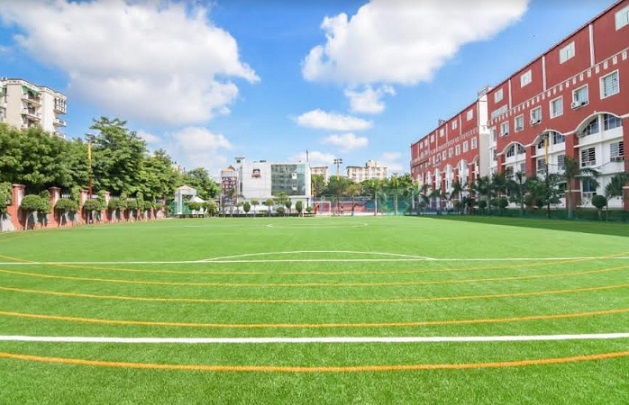
Ramagya School has been a trailblazer when it comes to collaborations with international universities
Education is not only a fundamental right of every individual; it’s also the most effective mechanism for the advancement of human beings. Hence, it is vital to ensure that everyone has access to quality education. One way to achieve this is through international collaborations.
Following this vision, Ramagya School has forged ties with the University of California and Cambridge University, paving the way to international exposure for students in more than 150 countries.

Sports Ground at Ramagya School
Mr. Utkarsh Gupta, Managing Director, Ramagya Group said, “At Ramagya School, we have already recognized the benefits of international collaborations and have formed partnerships with schools and universities worldwide. We are providing global education to our students to prepare them to be successful in a global market.”
According to Mr. Gupta, it is extremely important to join hands with professional learning communities worldwide. “Through international collaborations, students access a diverse range of resources and experiences that can help them develop the skills and knowledge they need to succeed in a global economy,” added Mr. Gupta.
It is through international collaborations, Ramagya School students have access to a diverse range of resources, including opportunities for collaborative learning programs, collaborative learning programs and cultural exchange programs. One of the USPs of Ramagya School’s international collaborations is its focus on STEAM (Science, Technology, Engineering, Arts, and Mathematics) education, which provides students with exposure to cutting-edge technologies and research. Ramagya School has designed programs that focus on developing 21st-century skills to ensure students can adapt to different learning environments.
While international collaboration in education offers many benefits, some challenges need to be addressed. One of the primary challenges is the difference in education systems, curricula, and teaching styles. It can make things challenging for students to adapt to a new learning environment and it can also lead to a disparity in learning outcomes.
To address this challenge, Ramagya School has designed programs that focus on the development of 21st-century skills, such as critical thinking, creativity, and communication. These skills are essential for students to succeed in a rapidly changing global economy, regardless of the differences in education systems.
(Disclaimer: The above press release comes to you under an arrangement with NewsVoir India and this publication takes no editorial responsibility for the same)
